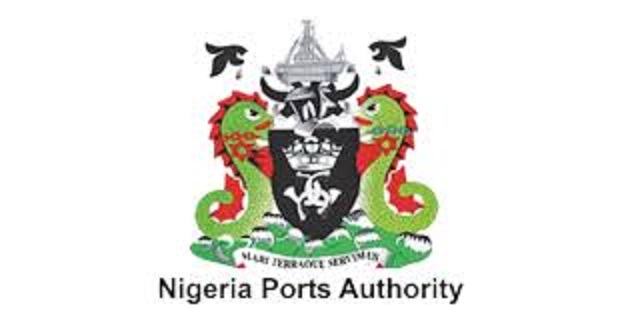The Nigerian Ports Authority (NPA) has stated that deliberate measures and investments are being undertaken to create a fully digital ecosystem in all the country’s port locations by 2025.
The Acting Managing Director of NPA, Mr Mohammed Bello-Koko, disclosed this in a statement signed by Mr Ibrahim Nasiru, Assistant General Manager Corporate and Strategic Communications, NPA, on Saturday in Lagos.
According to the statement, Bello-Koko made this known while giving a presentation on NPA’s ‘Digitalisation Roadmap and Current Information and Communications Technology (ICT) Implementation Status’.
The statement said the presentation was made at the 41st Ports Management Association of West and Central Africa (PMAWCA) Annual Council Meeting and 16th Round-table Conference of Managing Directors of PMAWCA, in Douala Cameroon.
Bello-Koko informed the delegates that a lot of work had gone into the smart port transformation agenda of the authority, aimed at enthronement of a paperless, time-saving and cost-efficient port operations.
The NPA’s helmsman who was represented by the Executive Director, Engineering and Technical Services, Prof. Idris Abubakar, disclosed that NPA first deployed a mainframe computer system in 1975.
The exercise was to to improve its payroll management, billing, statistical and accounting systems.
“From 1992, the deployment of personal computers was done at each port location to ease data management, and information sharing which was difficult as there was no connectivity between the ports.
“In 2011, the authority reviewed its ICT strategy in line with its new role as landlord, following the concession of port terminals in 2006.
“The primary focus of the new strategy is on enterprise computing and heavy dependence on network infrastructure, along with a centralised and shared database,” he said.
Bello-Koko noted that the adoption by NPA of a phased ICT deployment was geared towards achieving a fully integrated port operating system.
He said that it would foster relationship with all internal and external stakeholders, streamline NPA’s internal business processes; make use of high-end smart technologies, and record, monitor and utilise data for better decision making.
“A five year plan is now being implemented by the Authority for the attainment of a fully digitalised port system in Nigeria.
“So far, the authority has deployed a portfolio of systems and infrastructure towards the actualisation of its ICT objectives.
“These include Oracle Enterprise Business Suite for financial and human resources planning; Billing/Revenue and Invoice Management System (RIMS) to fast-track billing processing; Customer Portal/electronic Ship Entry Notice (eSEN)/Manifest Upload for shipping traffic management.
“Others are: Hyperion Budgeting for management of annual budget; Command, Control, Communication and Intelligence System (3Ci) for maritime domain awareness.
“And also management of vessel calls; truck call up and gate access control for the control and schedule of trucks to the ports as well as manage truck traffic around the port corridor,” he said.
He said that with the international supply chain faced with several disruptions, the authority intended to focus on the smartness level of the port rather than the size of the port in order to optimise productivity and meet the expectations of port users.
According to him, at NPA the goal is to leverage technology to close the gap between us and the major international ports.
“A digitalised port helps in making better informed operational decisions, increased efficiency, improve collaboration amongst stakeholders, lower port costs.
“Ultimately, it will help to meet the ever increasing customer expectations in a timely manner,” he said.
Earlier, President of PMAWCA and Director-General of Ghana Ports and Habours Authority (GPHA), Mr Micheal Luguje, described the conference theme: “Digitalised Port as a model of Port Efficiency”, as very relevant.
Luguje noted that it was relevant because more than ever, COVID-19 had indeed taught everyone that, we live in a very fragile world.
“Within a space of time, the dynamics with regards to world trade and our ways of life can change dramatically.
“The impact of Covid-19 cannot be swept under the carpet so easily. Countries are now rebuilding again after many years of economic progress has been wiped off.
“As leaders in the maritime field entrusted with the responsibilities of facilitating trade and economic progress for our respective countries, we are here to have serious discussion on how we can continue to adjust in the face of this unwavering virus.
“Also on how to plan and operate our ports to meet future challenges. The main aim is to explore diverse ways of using less to achieve more through the use of smart technologies,” he said.
The statement said that the PMAWCA 41st Council Meeting was declared open by the Minister of Transport for Cameroon, Mr Massena Bibehe.
The roundtable conference was chaired by the Director-General, Port of Douala, Mr Cyrus Ngo’o.
The event attracted heads of PMAWCA member ports and sister organisations including the International Association for Ports and Harbours (IAPH,) International Maritime Organisation (IMO), Maritime Organisation for West and Central Africa (MOWCA), Union of African Shippers Council and Abuja MoU.




